Shavkat Mirziyoyev at 2: Reforms and Outcomes
While Mirziyoyev excelled in promoting the image of Uzbekistan and that of himself and propelling good-neighborly relations, economic reforms, anticorruption campaign and HR policies are yet to be fine-tuned and puzzled over.
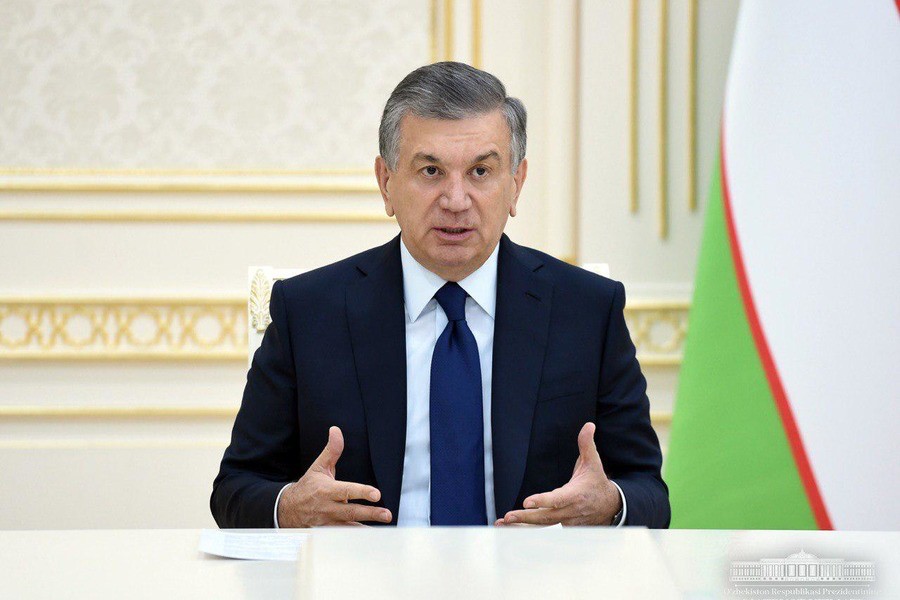
The advent of Shavkat Mirziyoyev as President turned out to be not a gentle wind, but wind of changes blowing across Uzbekistan. After becoming a president in 2016, Mirziyoyev launched comprehensive reforms to clean the condition resembling the Augean stables, left from the past years. He encountered a set of systemic problems, such as a negative image of Uzbekistan in the West, divergence in positions and impasse in relations among Central Asian (CA) states, tightly controlled economy, deeply rooted corruption, lack of qualified personnel and “brain drain”.
Two years have passed since Mirziyoyev embarked upon healing the scars of the past. Let’s look at how his policies towards the foregoing areas evolved since and what impediments he encountered along his way.
UNEXPECTED CHANGES
For so long time Uzbekistan was associated with child labor, closed country, restricted freedom of speech, oppression of civil society and arbitrary arrests, etc. After Mirziyoyev came to power “storm of reforms” ripped through the scars of the past, and metamorphosed the image of Uzbekistan in the eyes of the international society and channeled tense relations among CA states to a would-be regionalism.
Improving the image of Uzbekistan is the very domain Mirziyoyev excelled in. Dynamic changes taking place in Uzbekistan — fostering the freedom of speech (media becomes bold; not only is Voice of America no longer an “opposition”, but even its journalist now licensed to operate in Uzbekistan); Oliy Majlis (Parliament) ceased to consent to every single “recommendation” of executive power; elimination of child labor, liberalization of economy and a currency market, etc. — signaled to the West its intentions to build a democratic state. Thus, Mirziyoyev capitalized on laudable reforms, which produced instantaneous and not-bad results resulting in positive changes in perception of Uzbekistan by the international community. Firstly, academic circles and leaders of the West are treating Mirziyoyev as a reformer and pinning on him a hope of regionalism in Central Asia. Recently, Central Asia-Caucasus Institute presented a new book «Uzbekistan's New Face» highlighting breathtaking series of reform initiatives and a new spirit of regionalism. Secondly, Uzbekistan has eventually reached out to the White House. The last visit of Mirziyoyev to Washington on May 16, 2018 not only is the manifestation of certain economic or other pragmatic goals, but we should also consider it as an image promotion action, because it is very hard to get into the Oval Office on the invitation of its incumbent. Thirdly, we are observing growing economic interest of the West towards Uzbekistan, and the visit of U.S. Secretary of Commerce Wilbur Ross to Tashkent fortifies it. Fourthly, Uzbekistan is disappearing from a wide range of notorious “black lists”: US`s “cotton black list”, the “Countries of Particular Concern” list and State Department's “Religious Freedom List”, etc.
Personal image of Mirziyoyev among Uzbekistanis has skyrocketed momentarily. It is no secret that Mirziyoyev during his premiership was literally unknown person, as he was not shown on TV or reviewed in online editions — he was incognito or was overshadowed by Islam Karimov at that time; people could not recognize him since he was an unfamiliar face. However, launching an online platform (portal) of President not only has positively impacted on Mirziyoyev’s image, but it also has become as if a miracle for the populous. For there was no one whom the people could appeal to, or, actually, no one listened to them, a whole bunch of problems has accumulated over a quarter of a century. With the establishment of the portal, Mirziyoyev utilized it to hear problems and the “wrath” of people and as an instrument to stand out in the latter’s eyes. Thus, an influx of appeals funneled through the president`s platform not only was just considered, but problems — no matter what pleas were — momentarily started finding their solution. Mirziyoyev thus won the hearts and minds of the people.
However, such an approach had its drawbacks as well: it implanted the people a misperception of government. Being well aware of the power of the Presidential portal and thinking — “no matter what problem we face, the President will solve it”, the people started promoting their personal issues (say, asking money for their personal needs). Hence, Mirziyoyev, in the eyes of the people, metamorphosed from the head of the executive power into a “wish-maker”. However, when the “gift season” came to its end, the people became disappointed with the portal finding it useless. Moreover, against the background of a more-than-effective portal of the President, the platform of other governmental bodies, as perceived by the people, ended up ineffectual. Recently, I have encountered an awareness-raising campaign on TV, enlightening that funneling a problem through the online portal does not necessarily mean that it would instantaneously be solved, but considered by an appropriate governmental body; when it comes to a reason of creating it is elimination of long queues so economization of time by providing an opportunity for people to address their problems off-site.
Shavkat Mirziyoyev propelled an unexpected leap forward in regional policy. After taking over as president in autumn 2016, Mirziyoyev materialized mere principles on prioritization of relations with contiguous states, anchored in the Concept of foreign policy of Uzbekistan and which were as a “dead letter” for so long time, in practice. As a result of frequent bilateral and multilateral visits, delimitation and demarcation efforts, and easing border-control procedures and establishing visa-free regime with Kazakhstan and Kyrgyzstan, strained relations among CA states gradually started thawing. Also pleasing to the eye frequently seeing cars with Kazakh, Kyrgyz, Tajik and Turkmen license plate numbers on Tashkent and other-regions` roads that cast a Central Asian shade to them today. Above all, analytical circles of Europe and the US started speculating about little, but probability of integration of the region.
STUMBLING BLOCKS
Not everything flew as smoothly as it seems at first glance. Mirziyoyev is in the deadlock of infinity of initiatives and scarcity of human resources, and, additionally, his anticorruption policy has stumbled. Economic reforms are yet to be reassessed.
One of the most pressing problems Mirziyoyev has faced with the advent to power is corruption. His anticorruption campaign embraced concrete measures, which started with signing in 2017 a Decree on fighting corruption. Lately, we are witnessing an exponential increase in number of apprehensions of khokims (majors) and its deputies for bribery. On the one hand, this manifests pro-activity of the government in fighting corruption. On the other hand, however, this is the reflection of the ineffectiveness of the state policies towards fighting corruption.
Mirziyoyev harshly criticizes corruption and severely «chastises» the ones caught on bribery, nonetheless, khokims are not distilling conclusions from it as they are still charged with bribery. Reasons for this, as was mentioned in the Decree on the Administrative Reform, are “lack of openness and transparency of organs of the executive power, weak mechanisms of public scrutiny generates excessive bureaucracy and corruption in its different forms». In order to ensure comprehensiveness of the anticorruption campaign, in addition to tackling the foregoing hurdles, Mirziyoyev should formulate well-shaped financial incentives for civil servants and put it at the fore of its policy towards fighting corruption. For instance, apart from severely prosecuting corruption, the founding-father of Singapore Lee Kuan Yew stimulated officials by setting high salaries. As a result, not only could he clean the government, but also he attracted skills from private to public sector.
Another high hurdle impeding Mirziyoyev from advancing his reforms is the shortage of skills. Frequent dismissal of public servants, most of which hold positions for about a year then get sacked, is a clear indication of human resources problem. Such an impasse pushed Mirziyoyev to attract even serving MPs of Oliy Majlis (Parliament) to executive branch. For example, Alisher Kadirov and Akmal Burkhanov concurrently hold two positions: if the former is the Director of Center for “Ma`naviyat va Ma`rifat” (education and spirituality) and MP, then the latter is the Director of the Center for “Development Strategy” and MP, respectively; Alsiher Shadmanov, ex-MP, in 2017 has been appointed Minister of Health.
Seeking a way out of HR problem, Mirziyoyev in the course of his working visit to New York met with Uzbek diaspora living and flourishing in the US. He called them to return to Uzbekistan and play their part in overarching reforms taking place in Uzbekistan. There were some who positively responded to the call, but his efforts generally came to nought, because the government is not yet ready to ensure such conditions and standards of living as they enjoy holding high-level posts or running flourishing businesses in the US. Nevertheless, establishing an expert council “Buyuk Kelajak” (Great Future) is a positive step in this realm, given that members of the platform contribute innovative ideas relevant to the development strategy of Uzbekistan.
The problem actually is not confined to attracting highly qualified specialists from abroad, but also Uzbekistan needs to tackle «brain drain». Most students enrolled in prestigious national institutions are predisposed to continue their studies abroad and, alas, stay there forever for the sake of money. This is again because of low standard of wages that would not improve unless to carry out wise economic reforms.
Providing fair competition condition is a prerequisite to the success for economic reforms, what Uzbekistan is lacking today. During the last two years, Mirziyoyev eliminated the black currency market and liberalized foreign exchange market, launched tax and customs reforms. However, a “fair play” in the market is yet to be ensured. Drawing upon the recent statement of Dmitry Shukov, CEO of Beeline Uzbekistan, we can depict a general picture of the state`s role in the market. On November 2018, Universal Mobile Systems, along with being nationalized, will get an unfettered access to international telecom networks, while other telecom operators are left outside of this opportunity. Shukov, naturally, became distraught with this. He, thus, said: “from year to year, state telecom operators are subsidized and pampered by privileges and preferences at the expense of taxpayers and private operators”. He correctly pointed out that state-owned enterprises are often inefficient, and they tend to utilize more resources, while being less productive.
Moreover, we talk a lot about foreign investment attraction, but our efforts to eliminate barriers impeding foreigners to invest are not commensurate. Firstly, as prominent economist Yuliy Yusupov said: “the process of removing administrative obstacles, inhibiting doing business, is too slow”. Secondly, according to Karen Srapionov, “the stock market in Uzbekistan is dead” and “there are high hurdles impeding foreign investors to repatriate foreign currency thus discouraging them to invest their money into the economy of Uzbekistan”.
Over a two-year period Mirziyoyev could win the hearts and minds of the people, and Uzbekistan, owing to pro-active and resounding foreign policy, has become a cornerstone of regionalism in Central Asia. However, despite all the foregoing successes, there are some scars to heal — the state should ensure free market; anticorruption campaign should be tweaked by fortifying it with financial incentives for civil servants, and Mirziyoyev should puzzle over HR problem.
Otabek Akromov
Related News
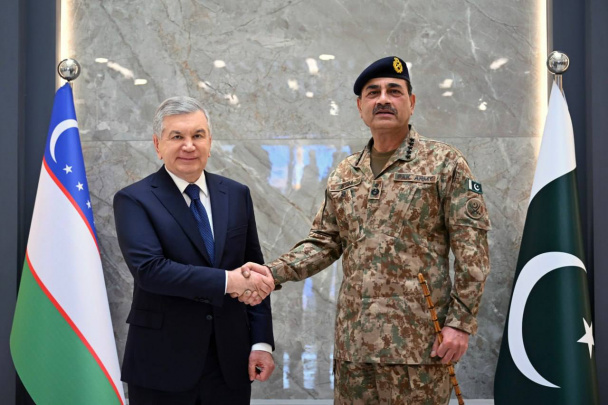
19:58 / 05.02.2026
Tashkent and Islamabad discuss defense and security cooperation
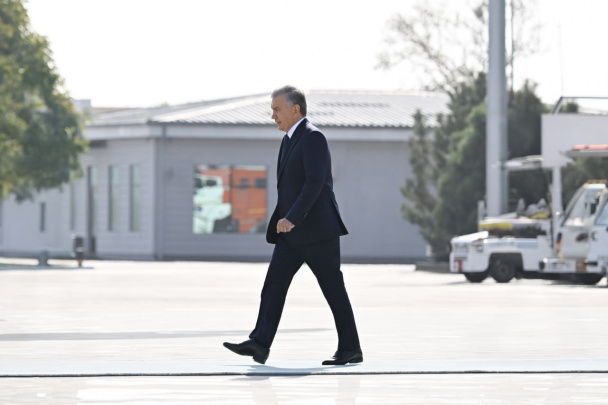
08:46 / 05.02.2026
President Mirziyoyev to visit Pakistan
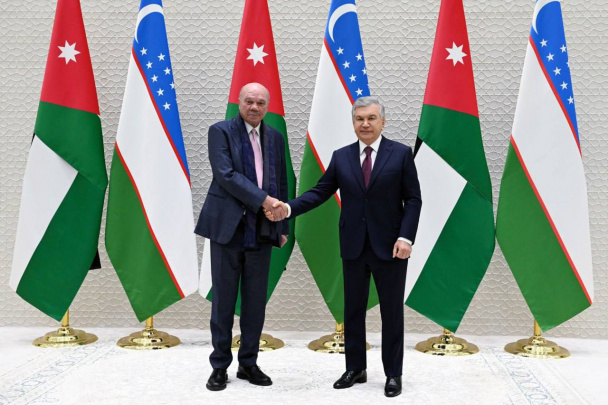
08:21 / 05.02.2026
Uzbekistan and Jordan discuss expanding cooperation across key sectors
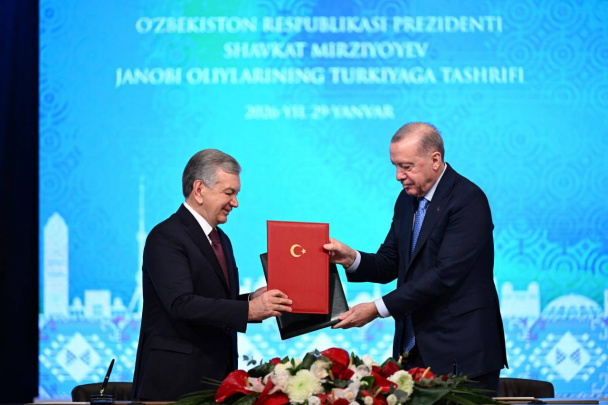
10:38 / 30.01.2026



